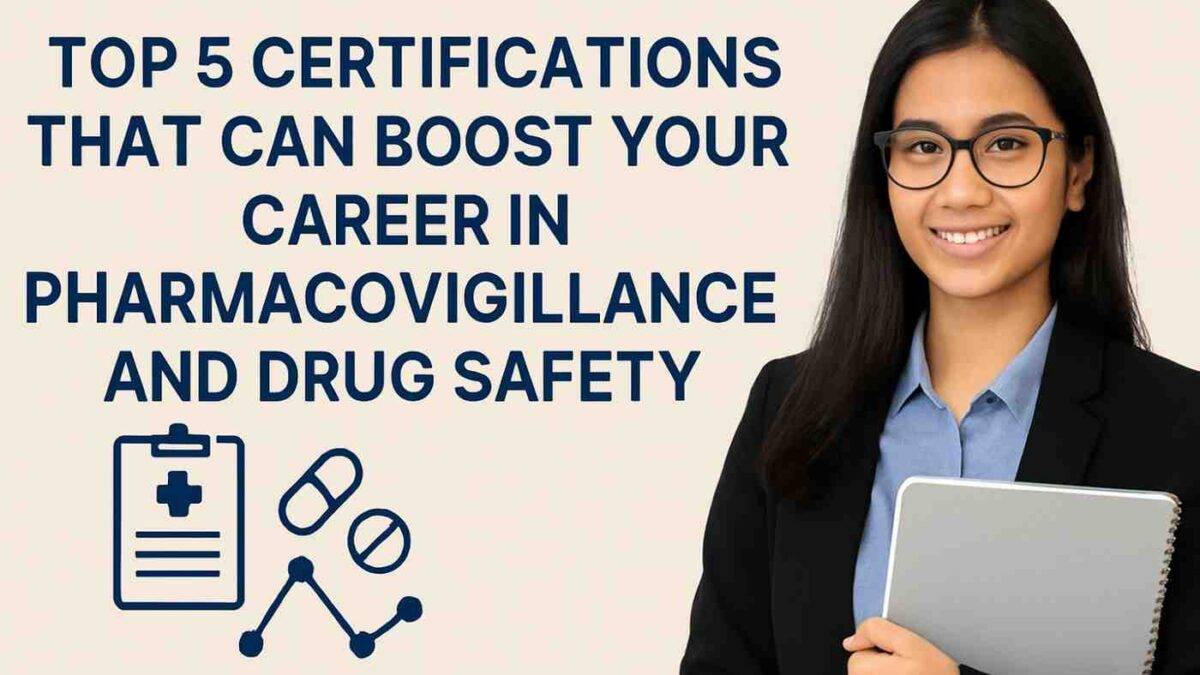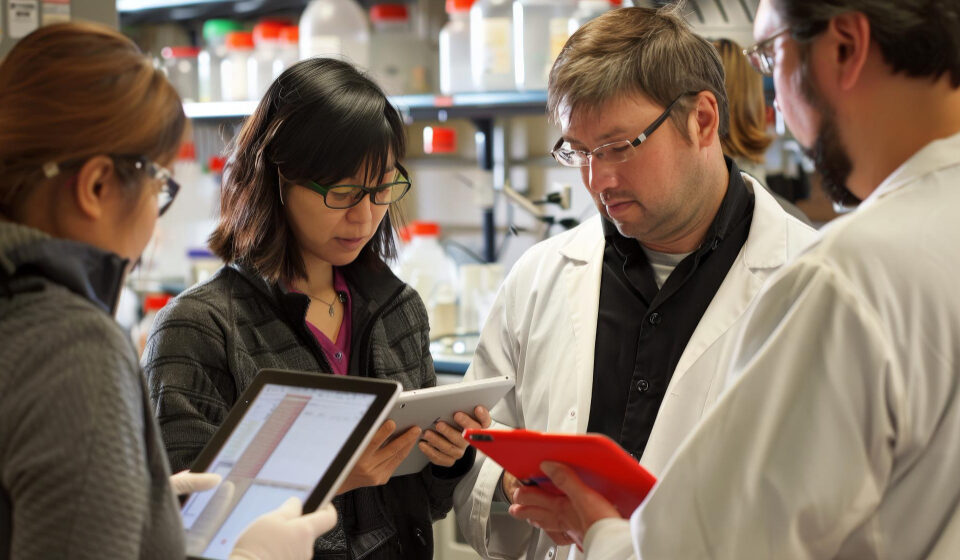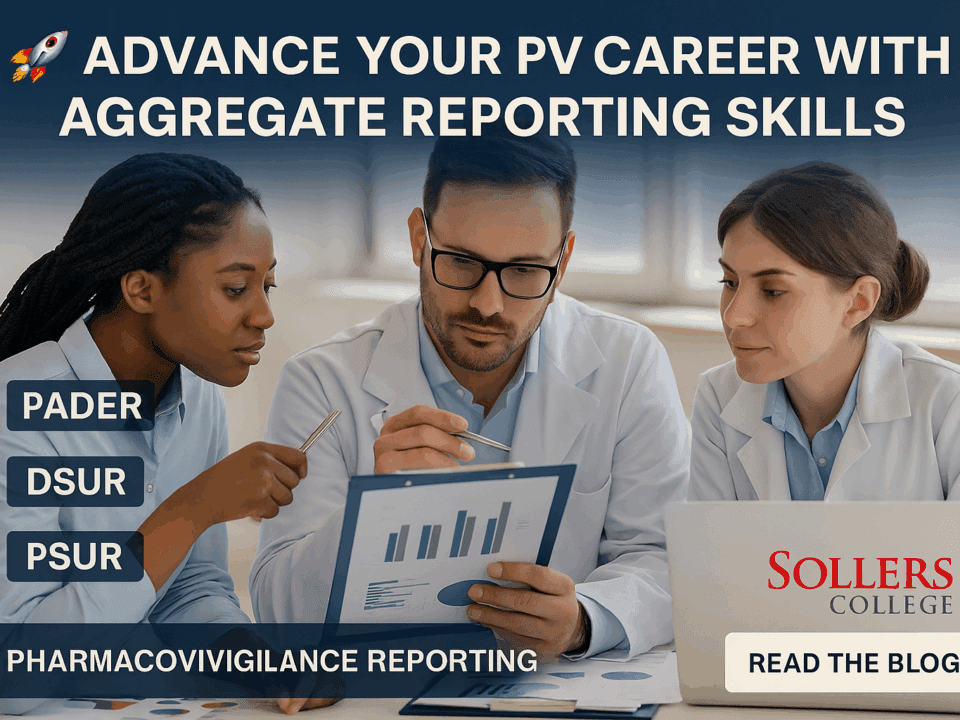
Introduction
In an era where patient safety and regulatory compliance are at the forefront of drug development, pharmacovigilance (PV) has emerged as one of the most in-demand fields in the life sciences industry. With increasing global focus on adverse event reporting, signal detection, and risk management, professionals with the right certifications in drug safety are uniquely positioned to succeed.
Whether you’re a fresh graduate or a healthcare professional looking to pivot, here are the top 5 certifications that can fast-track your pharmacovigilance career, especially if you’re targeting roles in the USA and other regulated markets.
- Certified Pharmacovigilance Professional – Sollers College (USA)
- Why it’s valuable: Offers a practical, hands-on training experience using real-world case scenarios and industry tools like Argus Safety.
- Who should take it: Fresh graduates and professionals with a background in pharmacy, nursing, medicine, or life sciences.
- What you gain: In-depth knowledge of PV systems, MedDRA coding, ICH guidelines, aggregate reporting, and regulatory compliance.
- Global value: High. Curriculum aligned with FDA, EMA, and MHRA regulations.
Keyword relevance: pharmacovigilance certification course USA
2. DIA (Drug Information Association) PV Certificate
- Why it’s valuable: Recognized globally and provides detailed knowledge on global regulations and safety practices.
- Who should take it: Professionals with 1–2 years of PV experience looking to specialize.
- Focus areas: Risk management plans, benefit-risk assessment, global safety regulations.
Ideal for roles requiring international regulatory compliance understanding.
3. IAOCR Certified Clinical Research & PV Certifications
- Why it’s valuable: IAOCR-accredited programs are globally recognized in the clinical trials and PV space.
- Who should take it: Life sciences grads and clinical researchers looking to upskill.
- Special highlights: Assesses job-ready competencies, not just knowledge.
Gives an edge in clinical trial and post-market surveillance roles.
- Udemy/LinkedIn Learning – Online PV Micro-Certifications
- Why it’s valuable: Affordable and beginner-friendly for gaining foundational PV knowledge.
- Who should take it: Those exploring PV before committing to a longer program.
- Limitation: Less value in job markets compared to institutionally recognized programs.
Good as a stepping stone, not a career-ending credential.
5. Regulatory Affairs Certification (RAC) – Drug Focus
- Why it’s valuable: While broader than PV alone, it enhances credibility for roles involving both regulatory and safety functions.
- Who should take it: Mid-level professionals transitioning into global PV or regulatory roles.
- Career bonus: Helps bridge pharmacovigilance with regulatory strategy.
Especially useful for cross-functional roles in global pharma companies.
Market Trends & Career Outlook
- The global pharmacovigilance market is expected to reach USD 13.9 billion by 2030, growing at a CAGR of over 11%. (Source: Grand View Research, 2024)
- The average salary for pharmacovigilance professionals in the USA ranges from $65,000 to $120,000 per year, depending on experience and role.
- According to BLS, job growth in the healthcare compliance and safety sector is projected to increase by 13% through 2032.
Stat Source: U.S. Bureau of Labor Statistics, Grand View Research
Conclusion
Investing in the right certification is more than just a resume boost—it’s a career strategy. Whether you’re stepping into the industry or aiming for leadership roles, these top 5 certifications will help you stand out in a competitive, high-demand global market.
Looking to enroll in a comprehensive pharmacovigilance certification course in the USA? Explore the programs at Sollers College, where real-world training meets career success.



